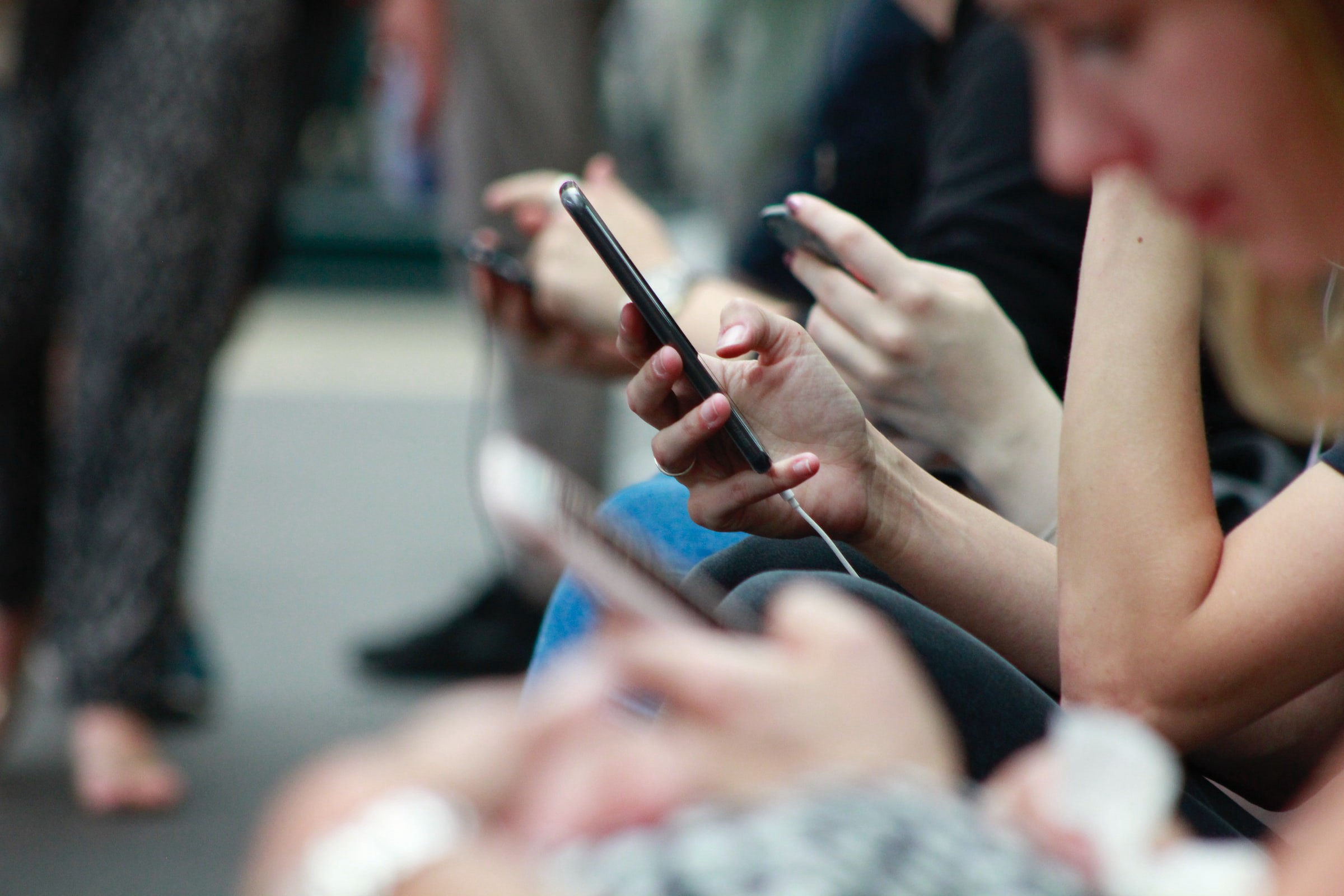You are sharing your location all the time. What do you get in return for the data you share?
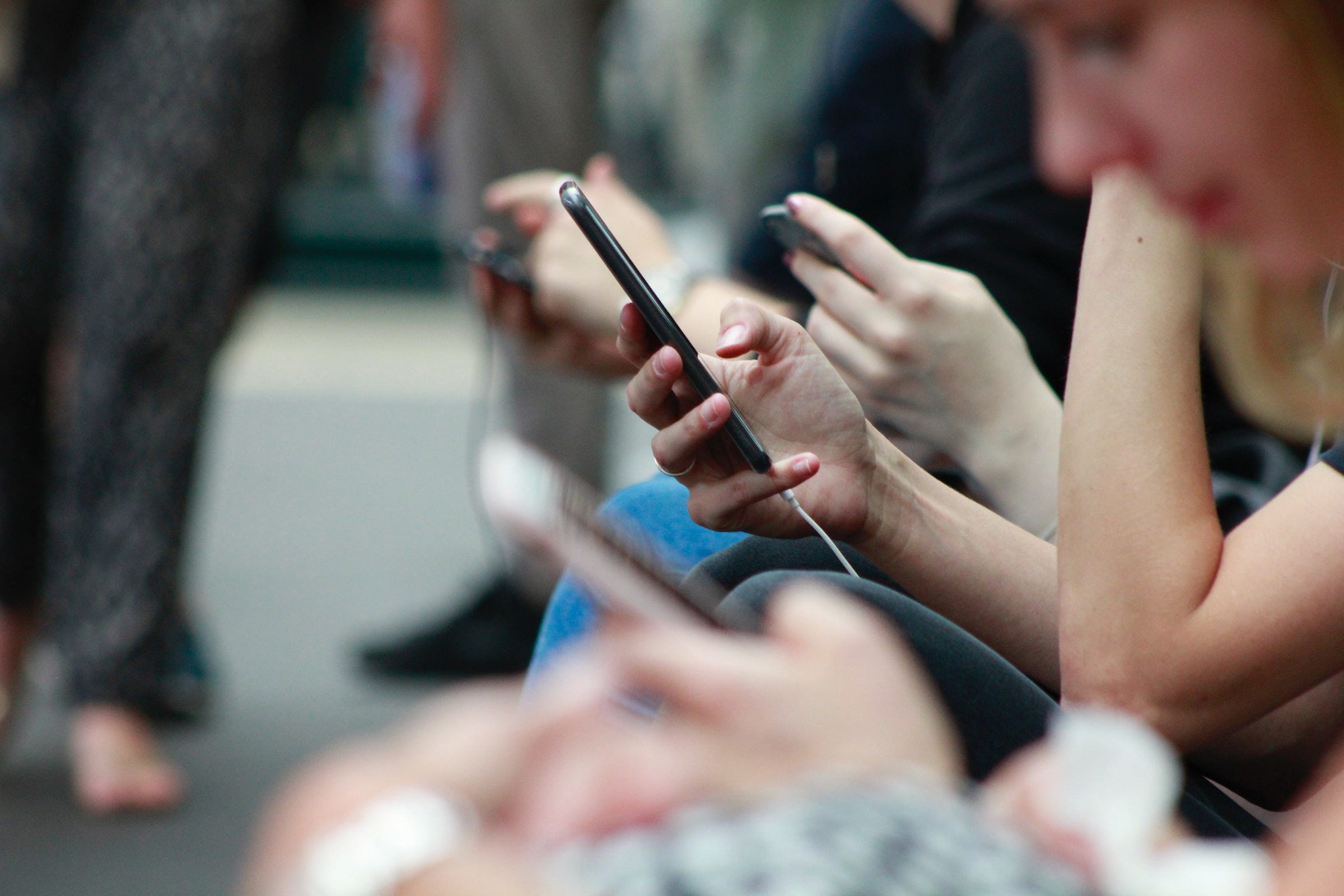
Knowingly or not, you are sharing your location.
Your mobile device sends out your current location, multiple times a day, to companies that collect that information from apps on your phone.
You may not have thought twice about hitting that ‘Allow’ button when you opened a new app for the first time, but from that point forward, that app has the ability to collect and use your location.
And what do these companies know about you? First of all, they know your location past and present, and based on your travel patterns, they can infer your home and work locations, as well as other places you visit. They can also start to figure out your preferences and activity — say if you visit your local gym frequently, they might label you as a ‘Gym Buff’.
This might show up back on your mobile device as a targeted advertisement to buy athletic wear from a nearby store. That may seem somewhat creepy, but for the most part harmless. But what happens if that location data gets in the wrong hands? Or if someone were to single out a specific device? Maybe someone traveling with the President?
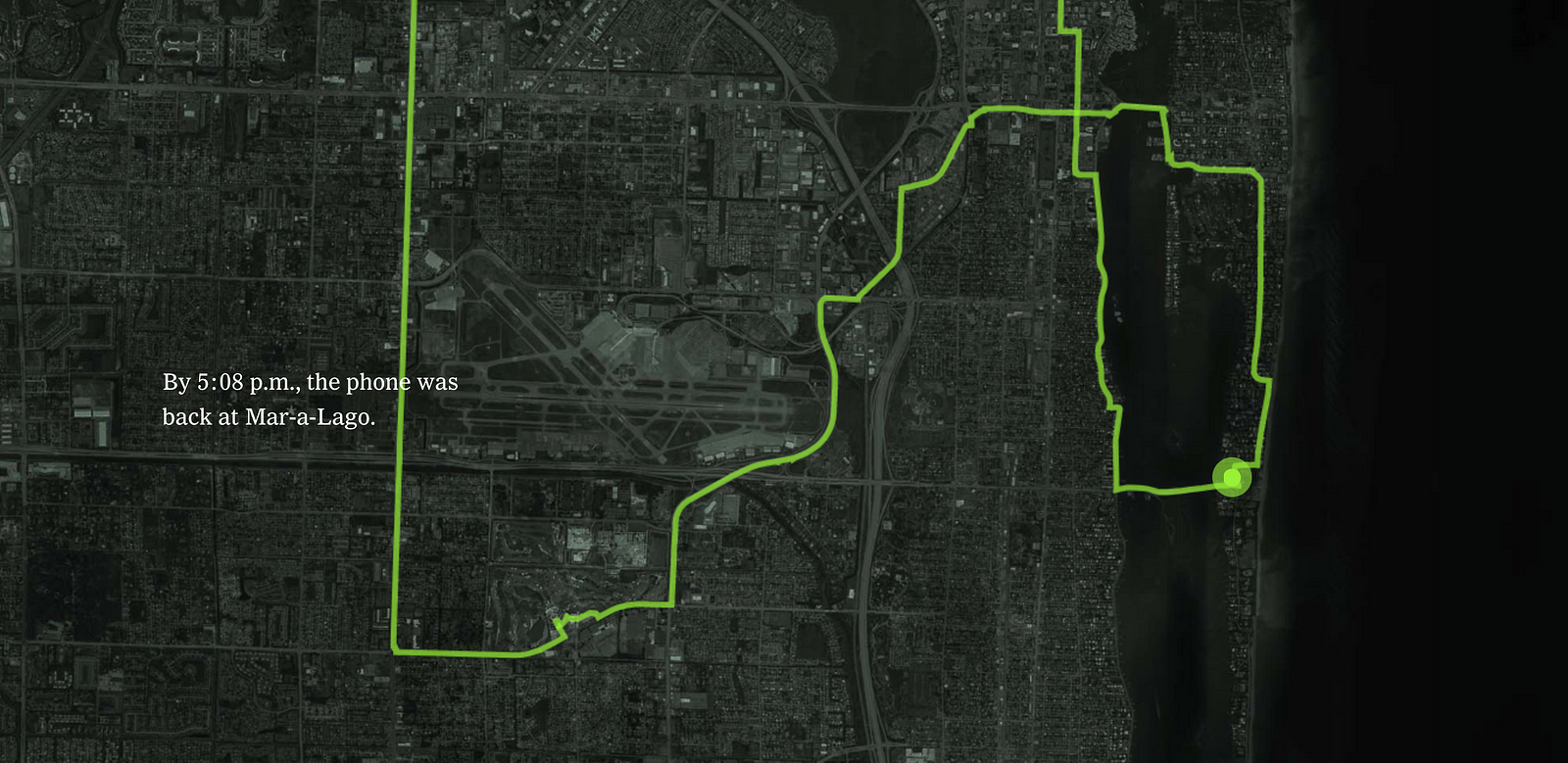
The New York Times article “One Nation, Tracked” describes what can be done with data like this, the privacy issues, and exactly how the data is used and collected along with tips on protecting your location data.
While this all feels, well a bit invasive, what is the value in actually providing your location data? We know the value for the companies that collect it and marketers, but is there some other value or good that can be drawn from this data?
Why am I sharing my location data?
As stated earlier, at some point you likely downloaded an app and allowed it to use your location in some capacity. It could have been an app for tracking movement, looking at the weather, even a game. It doesn’t matter the app as long as you allowed it to use your location.
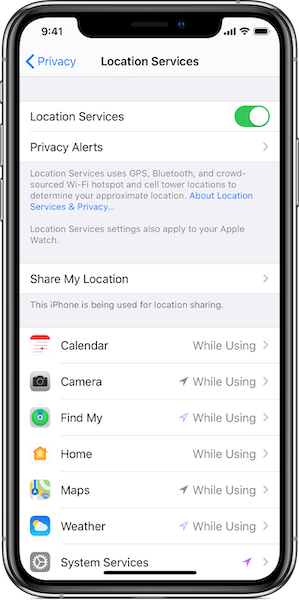
But the act of just having a device means your location can be used and is trackable since the iPhone has GPS capabilities inside of it. In reality, the only way to not share location data is to not have a phone, but if that option is not for you, then you have some choices to limit how your data is shared.
So can I turn location sharing off?
The good news is that Apple and Android users have a set of tools to choose what type of location data you share with different apps. You can also get rid of apps you don’t need that use your location, and save some space on your phone as well.
If you want to take it a step further you can get something like this, a bag that blocks your cell signal when your phone is inside. And of course, you can always just turn off your phone completely.
What am I giving up?
Ultimately by giving up your location data, you lose control of what can and cannot be done with that data. There aren’t any formal rules and regulations about how location data should be used, and how consumers should be protected.
While different companies have different policies on how they anonymize and aggregate your data, it isn’t clear which apps are sending data to which companies. In a New York Times opinion article in which Foursquare CEO Jeff Glueck called for congress to regulate the industry, Glueck states that:
There are no formal rules for what is ethical — or even legal — in the location data business. We could all take a Hippocratic oath for data science (as in medicine: “First do no harm”), and hope that living by such an oath would curb abuses. But even in the best of circumstances, that oath is voluntary.
So with a lack of visibility of where your data is going and the policies the companies using it have in place for privacy, you can assume that you are giving up a solid chunk of your location history.
Now beyond that, most companies will use your location history to build marketing profiles about you based on places you visit and neighborhoods you spend time in. The combination of your data plus other locations is what marketers, retailers, even real estate developers and Wall Street investors use to learn to place targeted advertisements and to look at the health of a business based on visit patterns.
Am I getting anything in return?
While all this looks like a lot of negatives and more ads sent to your phone, there are daily benefits that you get from location data.
If you have used navigation on your phone or used the blue dot on Google maps to help you find your way, then you have benefitted from sharing your location. Traffic data providers like Google and Waze use location data from users of their apps to better show traffic in real-time.
Google Maps can also look at locations you visit and make better recommendations about places you might be interested in visiting. These services only work with your location data and the contributions of many others sharing their data too. These direct benefits only come out of the power of numbers.
Other platforms that collect your location data, such as ride-sharing services, can use that data to better optimize their services and provide you better options and services.
That’s great, but outside of Google Maps and driving, what good does my data do?
The indirect benefits are actually even more interesting and potentially beneficial to you and the world around you. Understanding how people move around and utilize space is something that we have been studying for years, but location data allows us to answer these difficult questions.
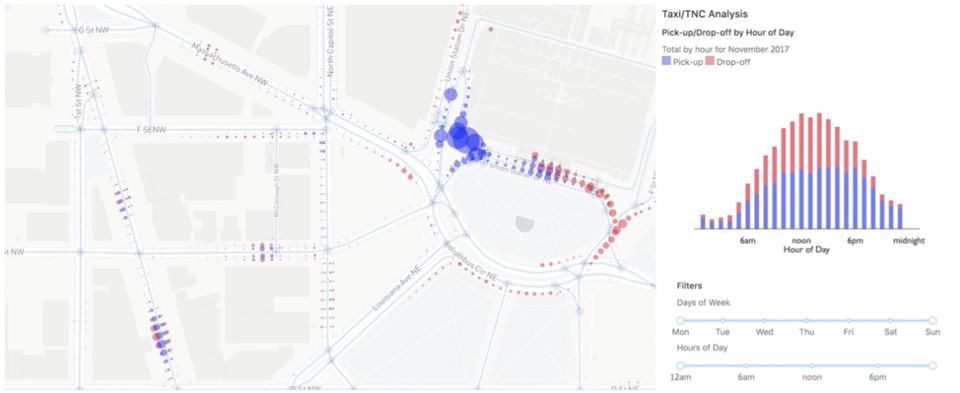
Retailers might use this data to see where they should open a new location-based on visits to their other stores. Companies might use it to find the best new office location for their employees. Location data can help is create a real-time census. A local business might use it to understand who consumers are in their neighborhoods.
The uses of this data for providing public services are almost endless: analyzing traffic patterns to fix congestion and problematic intersections that could be at risk for accidents, creating safer crosswalks, finding areas that are in need of public transportation routes, planning new parks by seeing where residents have to travel long distances to get to parks, finding food deserts, to seeing areas where residents have to travel long distances to get access to healthcare services.
The list is long but most recently, social distancing policies have relied on this data to understand how effective these policies have been in restricting human movement, and which areas are or are not following the policies. Location data provides immediate and real-time feedback on the effectiveness of these policies.
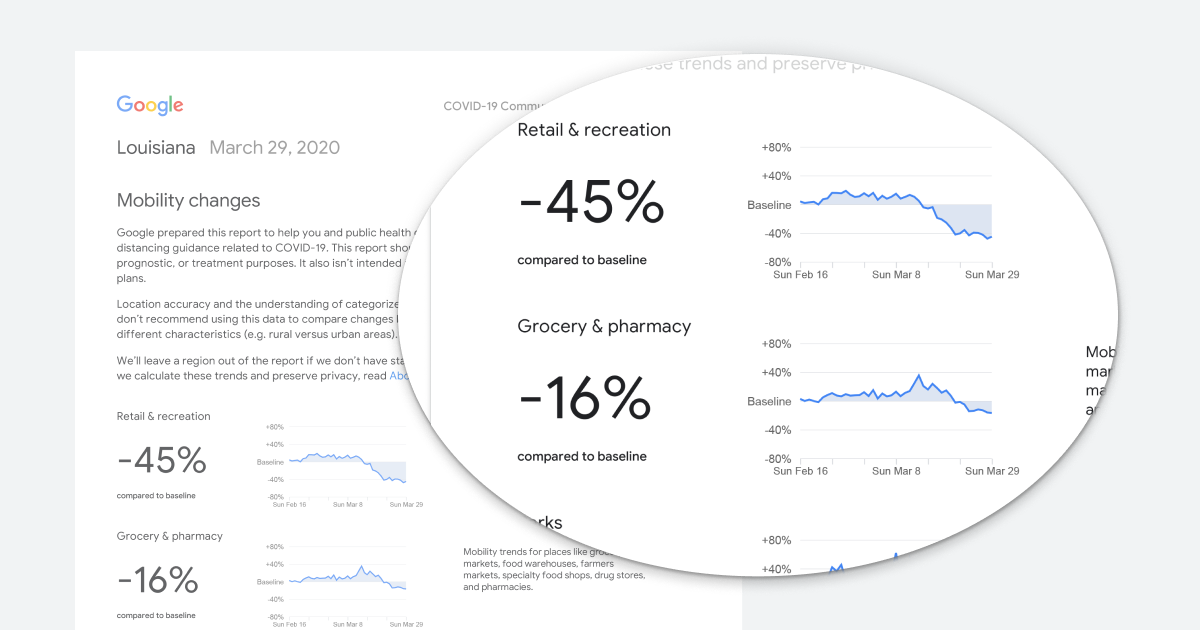
What’s next?
There is a lot of good that can be accomplished with location data, but without transparency around how your data is used and how your privacy is protected, it is up to each consumer to decide how and if they want to share their data.
To better enable consumers to feel safe and willing to share their data companies can be more transparent about the data they collect, anonymization and aggregation practices, how they monetize your data, and if they provide data to organizations using it for public benefit. Regulation is also necessary to ensure that there are industry standards around privacy, commercialization, and security standards to ensure not just anyone can buy your data and to protect it from bad actors.
Finally, ensuring consumers are clear about the benefits they receive from their data is important. By exposing the direct or indirect benefits (allowing users to profit from location data has even been thrown around as an idea) allows everyone to see the value of this data.
Simply clicking ‘Allow’ isn’t sufficient for consumers to know what data they are sharing and what they get in return to make a sufficient choice. Creating more transparency will allow everyone to choose and benefit from this powerful data.

